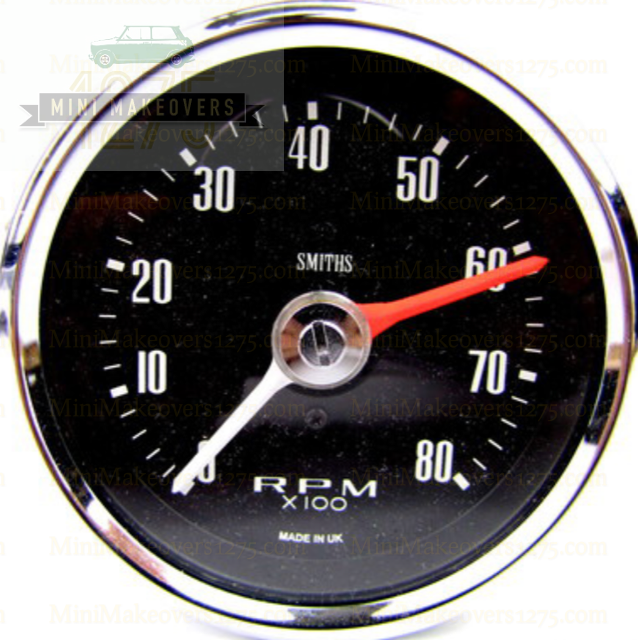Comprehensive Overview to Comprehending and Utilizing a Tachometer Properly
Comprehensive Overview to Comprehending and Utilizing a Tachometer Properly
Blog Article
Trick Reasons Having a Tachometer Is Crucial for Preserving Engine Wellness and Efficiency
In the realm of auto maintenance, the importance of a tachometer can not be overemphasized - tachometer. This modest yet vital tool plays a pivotal function in the upkeep of an engine's wellness and effectiveness. By offering real-time information on engine speed and RPM degrees, a tachometer provides invaluable understandings that straight affect the performance and longevity of the engine. From stopping over-revving to optimizing fuel intake, the applications of a tachometer are diverse and vital for any type of car proprietor or lover. Why is this relatively basic device so essential? Let's check out the vital reasons behind its critical duty in preserving engine health and performance.
Stopping Engine Over-Revving

To guard the engine from potential damage, it is necessary to carry out steps that avoid over-revving, a practice that can bring about expensive repair work and decreased engine life expectancy. Over-revving occurs when the engine's rotational rate goes beyond the maximum limitation set by the supplier, creating unnecessary anxiety on inner elements such as pistons, valves, and linking poles. This too much pressure can result in mechanical failures, including bent valves, harmed pistons, and also devastating engine failure.
A rev limiter is a device that controls the maximum RPM (revolutions per minute) of the engine by either cutting off gas flow or trigger to the engine when the pre-set limit is gotten to. Normal upkeep checks to make certain the engine is in optimum problem can also help in avoiding over-revving incidents and prolonging the engine's life-span.
Optimizing Gas Usage
Efficient fuel usage plays a crucial role in taking full advantage of the performance and sustainability of an engine. tachometer. Enhancing fuel usage not just assists in decreasing operational prices yet likewise reduces the environmental influence of automobile discharges. By making use of a tachometer to monitor engine speed and readjust driving behaviors appropriately, motorists can attain much better gas performance
Maintaining a consistent pace and preventing abrupt velocities and slowdowns can significantly improve fuel economic climate. In addition, appropriate gear choice based on the tachometer readings makes certain that the engine operates within its optimal range, resulting in much more efficient gas burning.
On a regular basis monitoring the tachometer can also aid identify any type of inadequacies or mechanical issues that might be impacting fuel consumption. As an example, an unexpected rise in gas usage without an equivalent change in driving behaviors could show a problem that needs attention.
Tracking Engine Wellness
Keeping track of engine health is important for making sure optimal efficiency and longevity of the car. By making use of a tachometer to monitor engine rate, drivers can spot abnormalities that may suggest potential issues with the engine. A tachometer provides real-time data on engine changes per minute (RPM), permitting drivers to recognize any type of uncommon spikes or decrease in RPM that might signify issues such as misfires, worn-out elements, or engine overheating.

Consistently monitoring engine health through using a tachometer makes it possible for vehicle drivers to deal with issues promptly before they escalate important link and cause significant damage. Finding a decline in RPM can indicate gas delivery problems or a clogged up air filter, while an unexpected boost in RPM might direct to problems with the transmission or exhaust system. By staying alert and receptive to adjustments in engine efficiency, drivers can protect against pricey repair work and make sure the general health and performance of their vehicle.
Extending Engine Life-span
Ensuring the longevity of an engine needs diligent maintenance methods and attentive tracking of vital efficiency indicators. Prolonging an engine's life expectancy is critical for minimizing general lorry upkeep costs and avoiding unexpected breakdowns. A tachometer plays a substantial duty in this element by providing real-time information on engine speed, permitting vehicle drivers and mechanics to make enlightened choices to avoid too much wear and tear.

In addition, normal maintenance based on tachometer analyses, such as prompt oil changes and stimulate plug replacements, can significantly add to expanding the engine's durability. On the whole, incorporating a tachometer right into regular engine surveillance practices is necessary for protecting the engine's health and wellness and efficiency over the long-term.
Saving Cash on Fixes
A tachometer aids in keeping track of the engine's RPM (revolutions per minute), making it possible for motorists to run within the advised variety. By remaining within these optimum RPM levels, excessive strain on the engine can be prevented, lowering the chance of pricey fixings due to overworking the engine.
In addition, by making use of the information from a tachometer to practice smooth velocity and deceleration, motorists can prolong the life expectancy of their automobile's elements, inevitably saving money on maintenance and replacements. Generally, the insights supplied by a tachometer encourage motorists to make educated choices that can avoid unneeded damage on the engine, you could try this out causing substantial expense financial savings in the future.
Final Thought
In conclusion, a tachometer plays a vital function in preserving engine health and wellness and performance by preventing over-revving, optimizing gas usage, monitoring engine visit health, expanding engine life-span, and saving money on repair work. It is an essential tool for making sure that the engine operates within secure limits and does at its best, inevitably adding to the durability and overall performance of the car.
Report this page